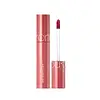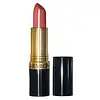What's inside
What's inside
 Key Ingredients
Key Ingredients

 Benefits
Benefits

 Concerns
Concerns

 Ingredients Side-by-side
Ingredients Side-by-side

Water
Skin ConditioningOctyldodecanol
EmollientDimethicone
EmollientAlcohol Denat.
AntimicrobialAcrylates Copolymer
Sorbitan Stearate
EmulsifyingEthylcellulose
Behenyl Alcohol
EmollientPentylene Glycol
Skin ConditioningActinidia Chinensis Fruit Extract
EmollientCarica Papaya Fruit Extract
Skin ConditioningCitrus Paradisi Fruit Extract
Skin ConditioningCocos Nucifera Fruit Extract
EmollientMangifera Indica Fruit Extract
Skin ConditioningPsidium Guajava Fruit Extract
AstringentPolysorbate 60
EmulsifyingSilica
AbrasiveSodium Acrylate/Sodium Acryloyldimethyl Taurate Copolymer
Emulsion StabilisingDiisostearyl Malate
EmollientIsohexadecane
EmollientPolyglyceryl-2 Triisostearate
EmulsifyingPolysorbate 80
EmulsifyingPolyglyceryl-2 Diisostearate
EmulsifyingSorbitan Oleate
EmulsifyingEthylhexylglycerin
Skin ConditioningButylene Glycol
HumectantDisodium EDTA
Phenoxyethanol
PreservativeParfum
MaskingCI 77891
Cosmetic ColorantCI 77491
Cosmetic ColorantCI 15850
Cosmetic ColorantCI 19140
Cosmetic ColorantCI 17200
Cosmetic ColorantCI 77492
Cosmetic ColorantCI 77499
Cosmetic ColorantCI 15985
Cosmetic ColorantCI 45410
Cosmetic ColorantWater, Octyldodecanol, Dimethicone, Alcohol Denat., Acrylates Copolymer, Sorbitan Stearate, Ethylcellulose, Behenyl Alcohol, Pentylene Glycol, Actinidia Chinensis Fruit Extract, Carica Papaya Fruit Extract, Citrus Paradisi Fruit Extract, Cocos Nucifera Fruit Extract, Mangifera Indica Fruit Extract, Psidium Guajava Fruit Extract, Polysorbate 60, Silica, Sodium Acrylate/Sodium Acryloyldimethyl Taurate Copolymer, Diisostearyl Malate, Isohexadecane, Polyglyceryl-2 Triisostearate, Polysorbate 80, Polyglyceryl-2 Diisostearate, Sorbitan Oleate, Ethylhexylglycerin, Butylene Glycol, Disodium EDTA, Phenoxyethanol, Parfum, CI 77891, CI 77491, CI 15850, CI 19140, CI 17200, CI 77492, CI 77499, CI 15985, CI 45410
Trioctyldodecyl Citrate
EmollientOzokerite
Emulsion StabilisingPolybutene
Ethylhexyl Palmitate
EmollientOctyldodecyl Neopentanoate
EmollientPentaerythrityl Tetraisostearate
EmollientC10-30 Cholesterol/Lanosterol Esters
EmulsifyingBis-Diglyceryl Polyacyladipate-2
EmollientCera Microcristallina
Emulsion StabilisingCaprylic/Capric/Stearic Triglyceride
Skin ConditioningBeeswax
Emulsion StabilisingSilica
AbrasiveSynthetic Wax
AbrasiveTocopheryl Acetate
AntioxidantAscorbyl Palmitate
AntioxidantAloe Barbadensis Leaf Extract
EmollientSerica
HumectantPentaerythrityl Tetraethylhexanoate
EmollientCaprylyl Glycol
Emollient1,2-Hexanediol
Skin ConditioningMica
Cosmetic ColorantCI 77891
Cosmetic ColorantIron Oxides
CI 17200
Cosmetic ColorantCI 19140
Cosmetic ColorantCI 15985
Cosmetic ColorantCI 42090
Cosmetic ColorantCI 15850
Cosmetic ColorantCI 45410
Cosmetic ColorantCI 77163
Cosmetic ColorantCI 75470
Cosmetic ColorantTrioctyldodecyl Citrate, Ozokerite, Polybutene, Ethylhexyl Palmitate, Octyldodecyl Neopentanoate, Pentaerythrityl Tetraisostearate, C10-30 Cholesterol/Lanosterol Esters, Bis-Diglyceryl Polyacyladipate-2, Cera Microcristallina, Caprylic/Capric/Stearic Triglyceride, Beeswax, Silica, Synthetic Wax, Tocopheryl Acetate, Ascorbyl Palmitate, Aloe Barbadensis Leaf Extract, Serica, Pentaerythrityl Tetraethylhexanoate, Caprylyl Glycol, 1,2-Hexanediol, Mica, CI 77891, Iron Oxides, CI 17200, CI 19140, CI 15985, CI 42090, CI 15850, CI 45410, CI 77163, CI 75470
 Reviews
Reviews

Ingredients Explained
These ingredients are found in both products.
Ingredients higher up in an ingredient list are typically present in a larger amount.
Ci 15850 is the pigment color red. It is an azo dye and created synthetically.
Azo dyes need to be thoroughly purified before use. This allows them to be more stable and longer-lasting.
This ingredient is common in foundations, lipsticks, and blushes. This color is described as brown/orangey red.
It has many secondary names such as Red 6 and Red 7. According to a manufacturer, Red 6 usually contains aluminum.
Learn more about CI 15850Ci 15985 is a dye made from petroleum. It is synthetically created and approved by the FDA for use in foods and cosmetics.
The color of this dye is orange/yellow.
This ingredient can be found in makeup, sun care, and skincare.
Learn more about CI 15985Ci 17200 is a synthetic reddish-purple dye.
CI 19140 is also known as Tartrazine. Tartrazine is a synthetic dye used in cosmetics, foods, and medicine to add a yellow color.
Tartrazine is created from petroleum and is water-soluble.
Some people may experience allergies from this dye, especially asthmatics and those with an aspirin intolerance.
Learn more about CI 19140CI 45410 is a synthetic red-pigment and dye.
It often goes by both Red 28 or Red 27; manufacturers label both ingredients as CI 45410.
This dye is commonly found in makeup because it imparts a vivid color. Some types of this dye change color based on pH level and interaction with moisture:
Your skin has a natural pH of around 4.5 - 5.5.
According to the FDA, CI 45410 is not permitted for use in eye products.
Red 27 is a flourescein dye and commonly used as a fluorescent tracer in medicine.
Learn more about CI 45410Ci 77891 is a white pigment from Titanium dioxide. It is naturally found in minerals such as rutile and ilmenite.
It's main function is to add a white color to cosmetics. It can also be mixed with other colors to create different shades.
Ci 77891 is commonly found in sunscreens due to its ability to block UV rays.
Learn more about CI 77891Silica, also known as silicon dioxide, is a naturally occurring mineral. It is used as a fine, spherical, and porous powder in cosmetics.
Though it has exfoliant properties, the function of silica varies depending on the product.
The unique structure of silica enhances the spreadability and adds smoothness, making it a great texture enhancer.
It is also used as an active carrier, emulsifier, and mattifier due to its ability to absorb excess oil.
In some products, tiny microneedles called spicules are made from silica or hydrolyzed sponge. When you rub them in, they lightly polish away dead skin layers and enhance the penetration of active ingredients.
Learn more about Silica